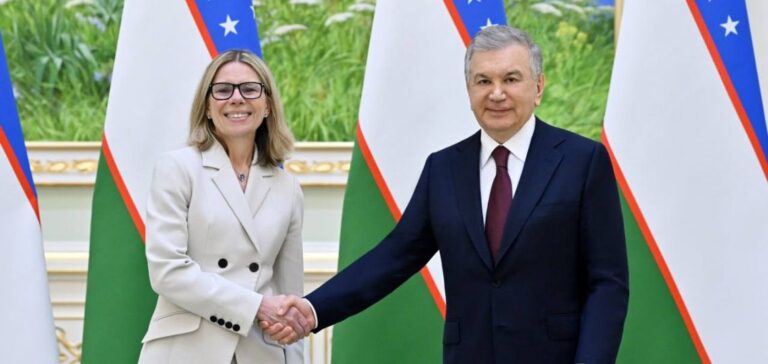Uzbekistan plans to increase the share of renewable energy to 54% of total electricity generation by 2030, up from the initially announced 40%. This transition comes amid rapidly growing energy consumption, which is expected to reach 121 billion kilowatt-hours by 2035, according to national projections.
In this context, the World Bank approved on May 15 a $100mn concessional credit to support Uzbekistan in integrating renewable energy into its electricity distribution system and improving supply reliability in priority regions such as Karakalpakstan and the Surkhandarya region. The public utility Regional Electric Power Networks (REPN) will contribute an additional $50mn, bringing the total investment to $150mn.
Aging infrastructure under strain
According to the World Bank, Uzbekistan’s electricity distribution system faces major inefficiencies, with technical losses estimated at 13% in 2024. More than half of the infrastructure has exceeded its operational life, with some facilities in use for over 30 years. The programme aims to modernise 6,000 km of low-voltage distribution lines, install or replace 1,200 transformers with a combined capacity of 250 MVA, and connect 150,000 smart meters to reduce commercial losses.
The plan, running through 2030, also includes the installation of 4,000 concentrators to prepare for automation and digitalisation of the network. These upgrades are essential to handle increasing volumes of renewable electricity generated by small and medium-sized enterprises and households.
Building a skilled workforce to support the transition
Alongside technical upgrades, Uzbekistan is working to strengthen its human capital. Universities such as Tashkent State Technical University and Kimyo International University are developing engineering programmes focused on renewable energy. Vocational training centres are also helping fossil sector technicians transition to solar, wind, and grid-related professions.
The need for qualified labour is increasing as new projects are launched. In April 2025, Uzbekistan announced major developments: a 1,000 MW wind power plant in Karakalpakstan, a 500 MW solar plant in Jizzakh, and nearly 3,000 micro hydropower stations planned by the end of 2026.
A labour market under pressure
With only 41% of higher education graduates employed within two months of graduation in 2024, the energy sector offers a key opportunity to absorb available labour. The new programme backed by the World Bank is expected to integrate up to 50 MW of locally produced renewable energy and cut CO₂ emissions by 450,000 tonnes per year by 2029.
Efforts are also underway to strengthen REPN’s financial viability, as commercial losses and unpaid bills have placed significant pressure on the state budget. The programme includes governance reforms, financial management improvements, and strategic planning for distribution infrastructure.
Performance targets and social inclusion
The World Bank aims for a 90% customer satisfaction rate with REPN services by 2029. Additionally, the proportion of women in technical and managerial roles at the company is projected to rise from 9% in 2025 to 14% through targeted training and recruitment measures.
These efforts complement broader national initiatives to increase female participation in the energy sector. At the Women’s Power Forum in March 2025, ACWA Power Uzbekistan reported that 26% of students at its partner Shirin Energy College were female and that women held 20% of leadership positions at the company.






















